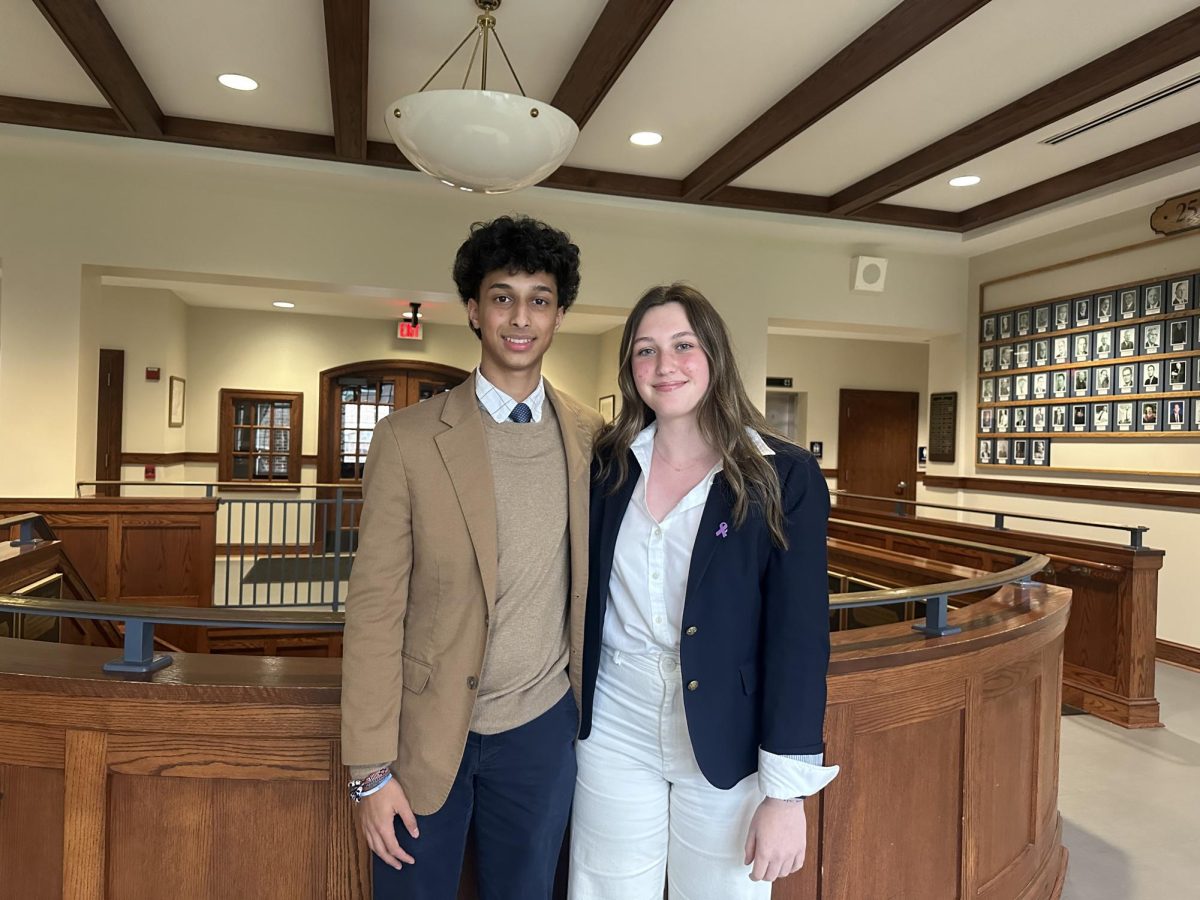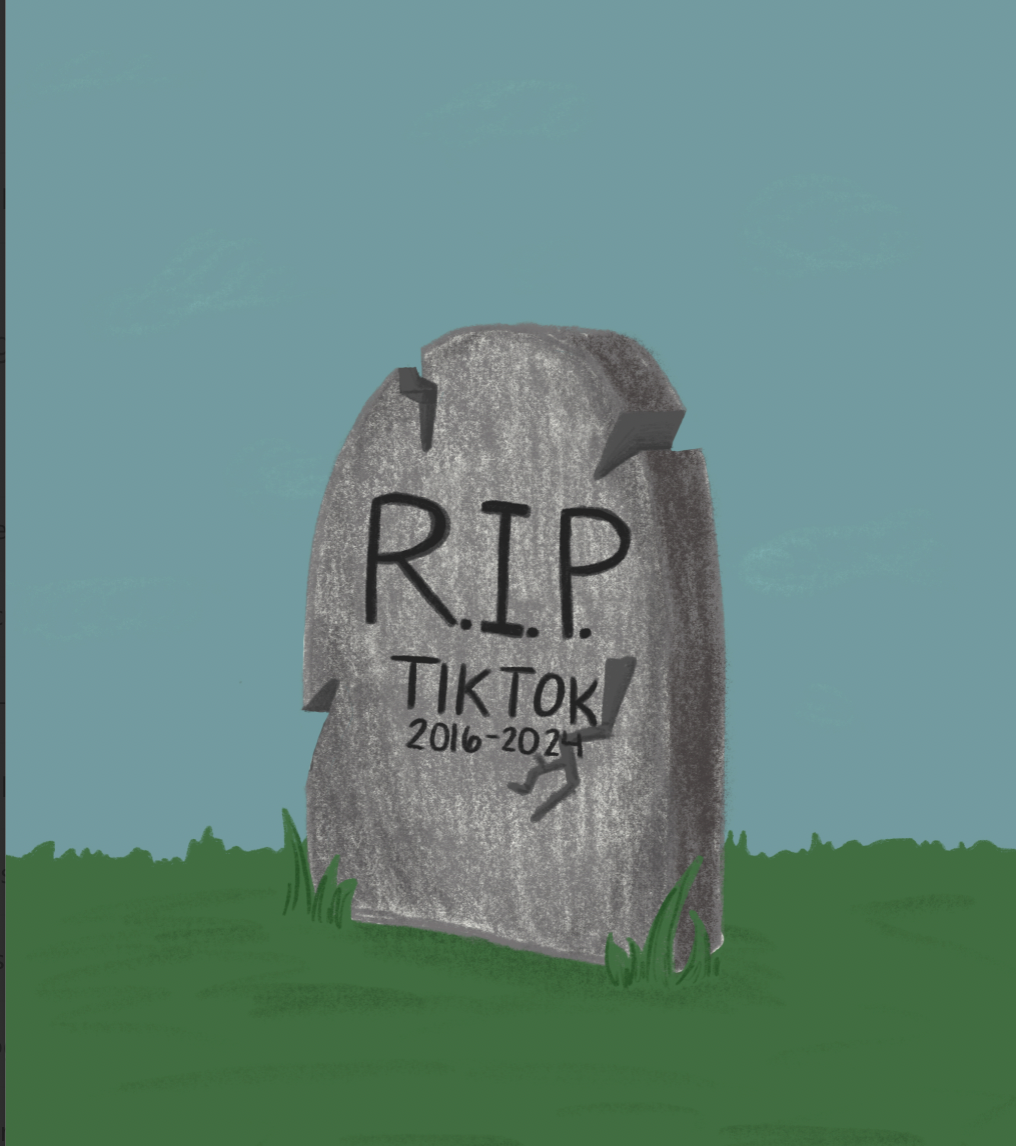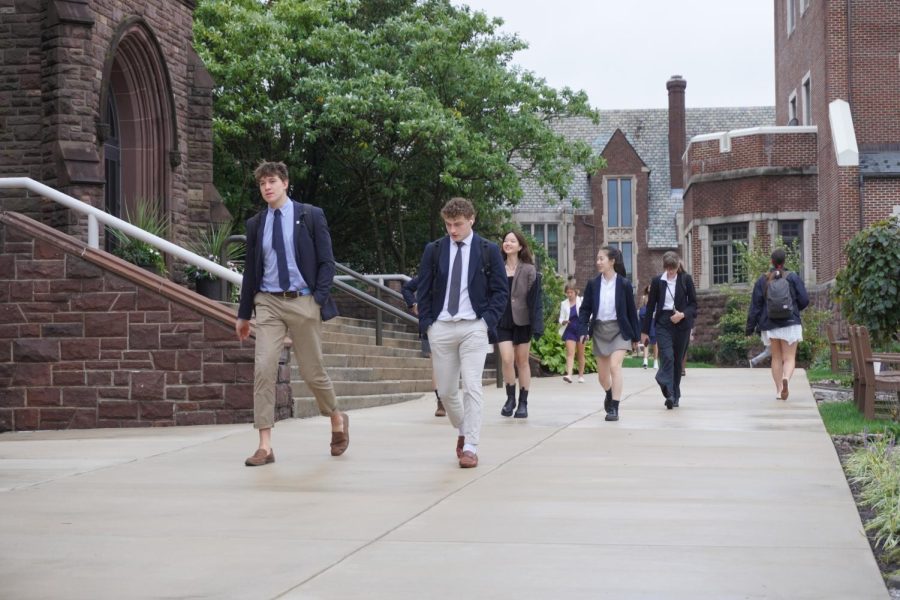Passing periods revert back to their pre-COVID time
Media: Ibrahim Eckmekci ’25
Students travel to their classes during the now universal 7-minute passing period.
When entering the 2022-2023 school year, students noticed a subtle change their academic schedule: their passing periods had been standardized. While the 2021-2022 school year saw some students with a 10-minute passing period between classes, the new schedule shaved that amount down to seven minutes
Passing periods are the times that students have to travel in between class periods.
This new change resulted from research aiming to create an efficient schedule that increased student instruction and ensured students enough time to move across campus while also moving away from the COVID-19 restrictions that permeated throughout the school between 2020 and 2022. Academic Dean Katy Hudak adds on that the decision for seven-minute passing periods was grounded in both practice and practicality, “given the size of our campus and the need for students to frequently move between buildings.”
In previous years, passing periods have been ten minutes between long blocks. As Dean of the Shirley Quadrivium Center Jared Courtney notes, the 2021-2022 school year was an exception, with previous academic years stipulating seven-minute passing periods. Courtney further explains the additional three minutes during the pandemic passing periods were rooted in COVID precautions rather than the length of block periods. For example, when students entered the newly built Shirley Quadrivium Center in 2021, they had to enter through the main staircase, but when leaving the building, had to leave through the side staircases. This, of course, presented a dilemma in which students could only travel in a certain direction, which is why the academic deans temporarily increased passing periods to ten minutes during these restrictions.
The academic office also took into consideration the passing period of peer schools. Compared to fellow boarding schools, the deans generally found that passing periods—on the high end—were seven minutes but declined to even no time at all between classes, as with Mercersburg Academy.
Within two weeks, however, the academic deans had already made slight adjustments to the new schedule. The time to lunch increased from five minutes to seven minutes. This was largely because of the flood of complaints by both faculty and students—although particularly because of the faculty—which argued that arriving punctually was difficult, especially for students in the CFTA or third floor of the Athey Academic Center, and the fact that pantry privileges were being diminished due to the decrease in “passing period time.”
For some, however, this recent change was—quite frankly—too much. As Lukas Coetzee ’25 puts it, “How am I expected to make it to class if I also need to go to the bathroom or talk to a teacher?” Some students—like Nikheel Madhoo ’23—also find it absurd how they are expected to walk from the CFTA to the Quadrivium in under seven minutes while also having to pack up and change. Madhoo has trouble moving between his AP economics class in the CFTA and his AP physics class on the third floor of the Shirley Quadrivium. “Seven minutes is just not enough,” Madhoo said. “If I leave right when the bell rings, I always arrive twenty seconds late. That’s on a good day, but I’m usually two minutes late.”
Yet others do not mind the new change. Alex Lilienthal ’24 even argues that the new passing period “has increased my punctuality since it forces me to be more alert.” Logan Ray ’25 further points out that “for most students like me, seven minutes is more than enough to get where I need to go.” Some students have even pointed out that seven-minute passing periods, while harming the students that must travel across campus, actively benefits most students by increasing their in-class instruction time.
As the Academic Office points out, if students are struggling to make it to their classes in a timely fashion, the deans have an answer. They recommend talking with the student’s teachers to accommodate their regular tardiness through either early dismissals or extended leniency for lateness.
If this is still not enough, and a student rapidly racks up dozens of demerits for their routine tardiness, their best choice of procedure is to report to the Academic Office, as they are always welcoming new feedback about class schedules and anything else pertaining to student life. The new extended passing period to lunch is a case in point of this.
In the end, the Academic Office is willing to adapt to the changes and challenges of each school year. “Like everything else, passing times are certainly worth scrutinizing if we live with this new schedule for a while and learn that the current model is not serving our needs well,” Hudak stated.



























